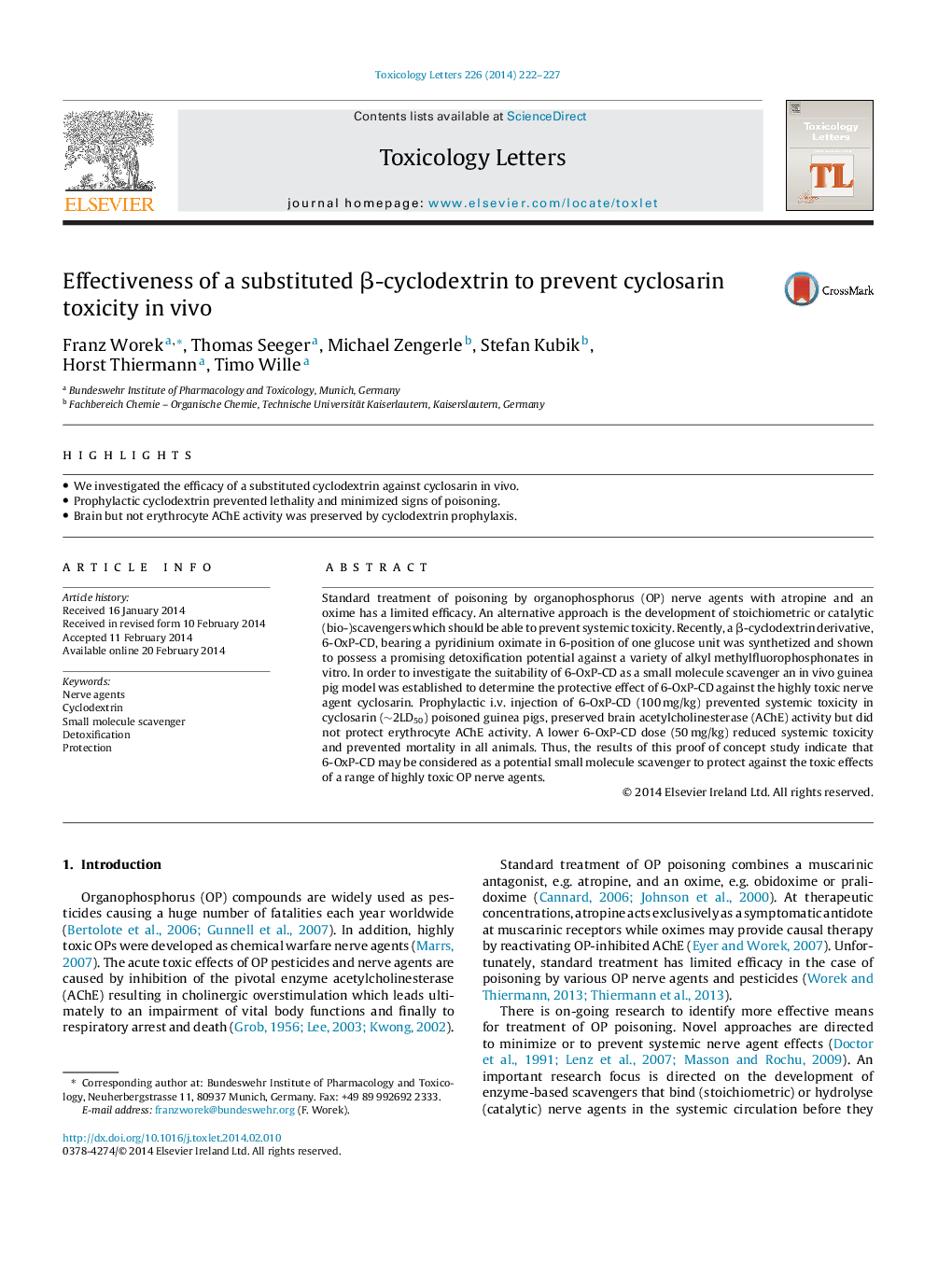| Article ID | Journal | Published Year | Pages | File Type |
|---|---|---|---|---|
| 5860362 | Toxicology Letters | 2014 | 6 Pages |
â¢We investigated the efficacy of a substituted cyclodextrin against cyclosarin in vivo.â¢Prophylactic cyclodextrin prevented lethality and minimized signs of poisoning.â¢Brain but not erythrocyte AChE activity was preserved by cyclodextrin prophylaxis.
Standard treatment of poisoning by organophosphorus (OP) nerve agents with atropine and an oxime has a limited efficacy. An alternative approach is the development of stoichiometric or catalytic (bio-)scavengers which should be able to prevent systemic toxicity. Recently, a β-cyclodextrin derivative, 6-OxP-CD, bearing a pyridinium oximate in 6-position of one glucose unit was synthetized and shown to possess a promising detoxification potential against a variety of alkyl methylfluorophosphonates in vitro. In order to investigate the suitability of 6-OxP-CD as a small molecule scavenger an in vivo guinea pig model was established to determine the protective effect of 6-OxP-CD against the highly toxic nerve agent cyclosarin. Prophylactic i.v. injection of 6-OxP-CD (100 mg/kg) prevented systemic toxicity in cyclosarin (â¼2LD50) poisoned guinea pigs, preserved brain acetylcholinesterase (AChE) activity but did not protect erythrocyte AChE activity. A lower 6-OxP-CD dose (50 mg/kg) reduced systemic toxicity and prevented mortality in all animals. Thus, the results of this proof of concept study indicate that 6-OxP-CD may be considered as a potential small molecule scavenger to protect against the toxic effects of a range of highly toxic OP nerve agents.
